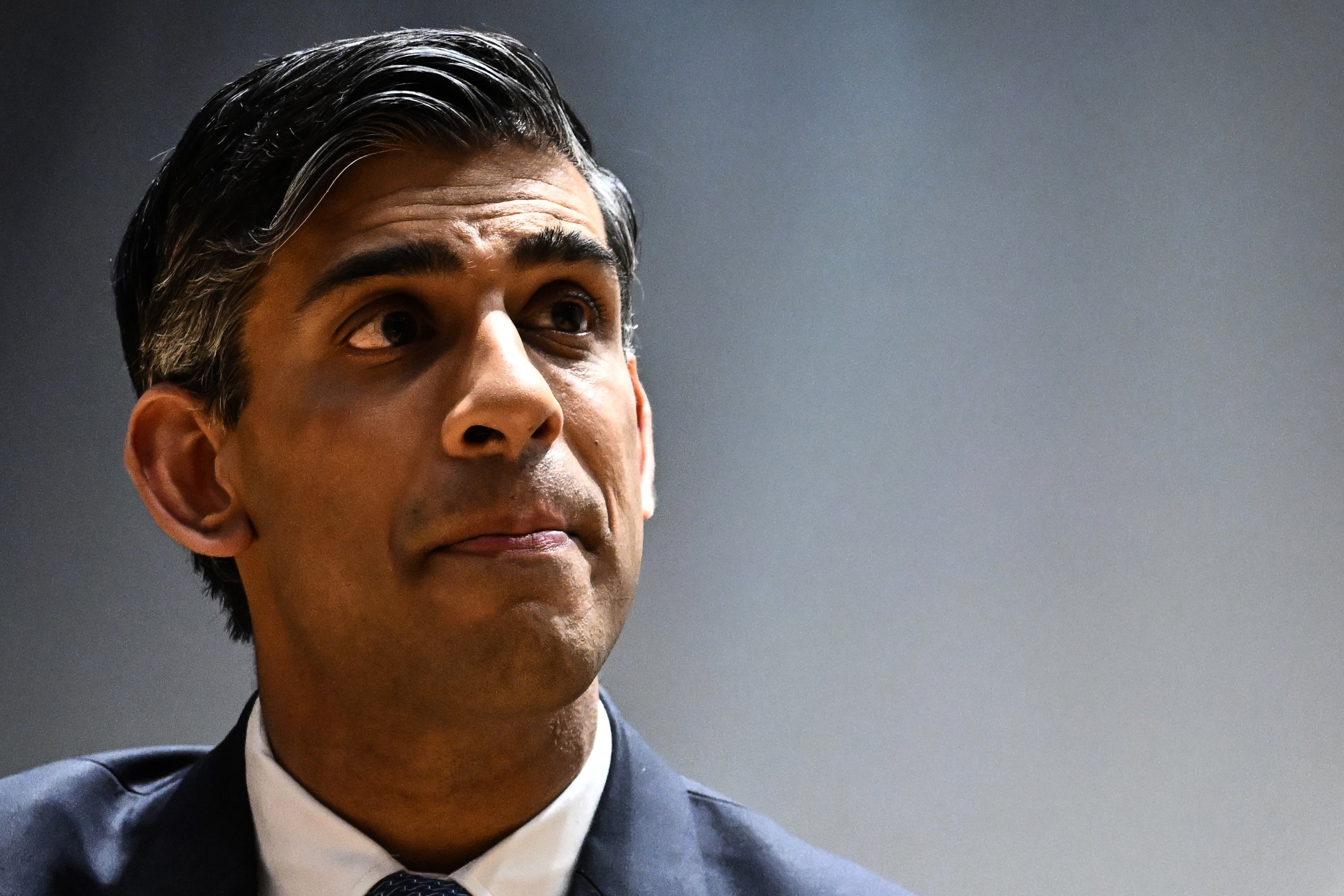One sure way of making the next election even harder for Rishi Sunak would be a lurch to the right
Editorial: The right way for the Conservatives to fight their uphill battle is to occupy the centre ground and to challenge Labour to set out its policies

It would be a mistake for Rishi Sunak to think that two by-election defeats require him to turn to the right. Government sources have told The Independent that the prime minister intends to engage in “crunchier” political arguments about immigration, where the Conservatives believe that Labour is weak.
While it is certainly true that Keir Starmer and Yvette Cooper, the shadow home secretary, need to say more about their policies on migration, Mr Sunak should be careful not to allow himself to be seen as monomaniac on the subject.
The prime minister should acknowledge people’s legitimate concerns about the small boats, and he should continue to improve the processing of asylum applications and the removal of failing asylum-seekers, but a punitive approach will narrow the appeal of the Conservative Party rather than broaden it. That Robert Jenrick, the immigration minister, ordered a cartoon mural at a child migrants reception centre to be painted over sent a terrible signal about this country’s humanity and compassion.
Similarly, Mr Sunak should resist pressure from his colleagues, including some in his cabinet, to take the fight to Labour over the coming months on wider issues of the so-called culture war. Fortunately, as we report, he appears to be reluctant to use transgender rights as a way of trying to divide public opinion to what some Conservatives imagine would be their partisan advantage.
The temptation was understandable, as the Labour Party had got itself into an unnecessary tangle in response to the “gotcha” charge of not knowing what a woman is, but most ministers and shadow ministers now occupy the sensible centre ground of balancing rights and risks. Nothing will be gained by dividing people on this sensitive issue rather than trying to bring them together.
It should also be easy for Mr Sunak to resist the pressure, mainly from people such as Lord Frost, Boris Johnson’s Brexit negotiator, for the government to “junk” net zero as a meta-policy objective. Lord Frost said that the lesson of the Conservatives holding the Uxbridge and South Ruislip by-election against the national opinion polls was that it showed “just how unpopular” net-zero policies can be. The extension of Ulez planned by Sadiq Khan, the Labour mayor of London, was undoubtedly responsible for Labour’s failure to win the seat, but it is not of course a climate-crisis policy – it is designed to improve local air quality.
Mr Sunak knows well enough that he cannot allow the government’s policy on green issues to look as if it is dictated by the anti-science fringes of his party. He will rightly want to focus on the practical question of how much investment now is needed to secure a cost-effective low-carbon future – and to force the Labour Party to be more specific about its plans.
That is the right way for the Conservatives to fight the uphill battle for the next election: to occupy the centre ground and to challenge Labour to set out its policies – on small boats, the NHS and the climate crisis – in more detail. Such an approach should succeed in demonstrating that there is not much difference between the short-term prospectuses of the two parties, thus levelling the playing field between them.
Sir Keir has been explicit about learning from Tony Blair in the past week, attending the former prime minister’s Future of Britain conference for an informal laying on of hands. But Mr Sunak should be a student of Mr Blair’s too – although he is surprisingly more constrained by his party in that respect than Sir Keir is. Mr Blair held the centre ground and for years managed to make the Conservatives seem extreme, right-wing and irrelevant.
The next election will be hard enough for Mr Sunak. Mr Blair teaches that the one sure way of making it harder still would be a lurch to the right.



Join our commenting forum
Join thought-provoking conversations, follow other Independent readers and see their replies
Comments